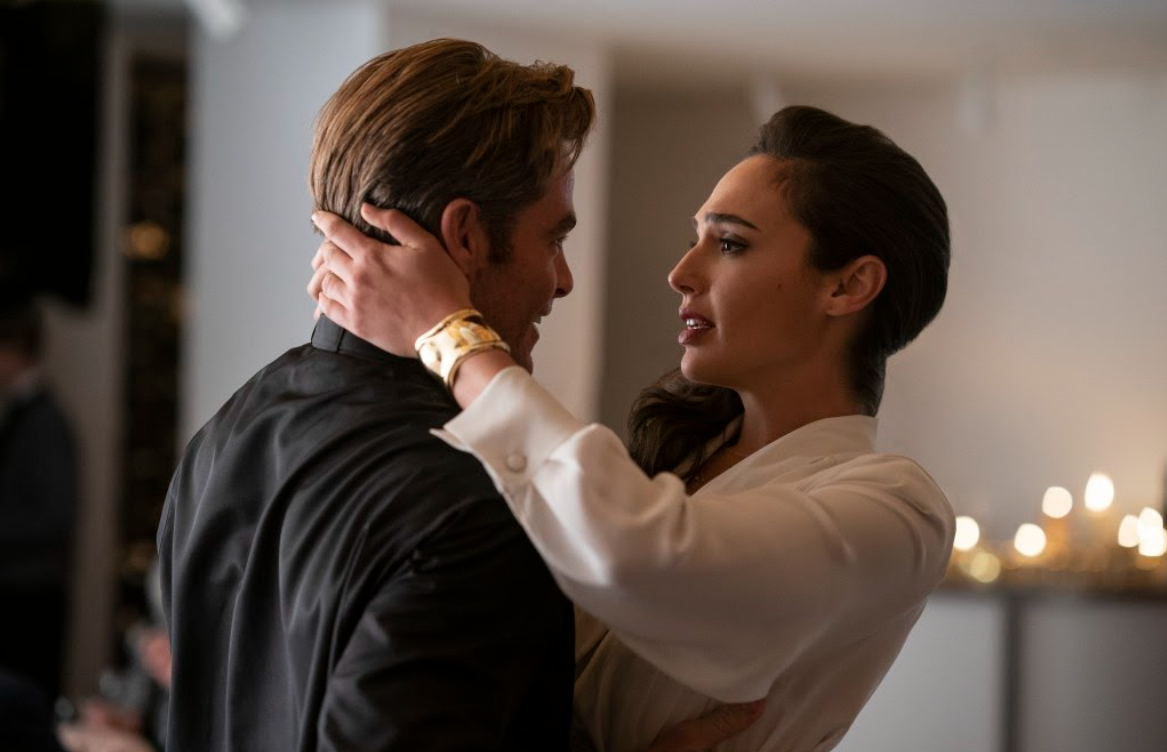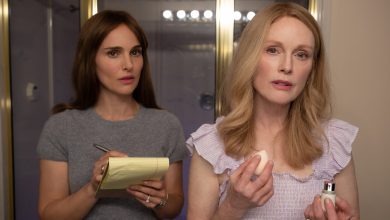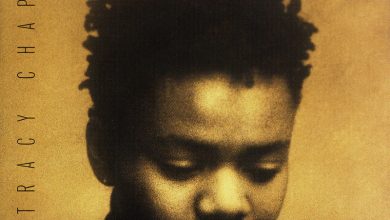The Curious (and Problematic) Case of Steve Trevor in “Wonder Woman 1984”

Image Source: Youtube
Image Description: Chris Pine (left, standing in profile), wearing a black jacket and sporting a mix of dark blond and brown hair, smiles at and embraces Gal Gadot (right, also in profile), wearing a white dress and red lipstick with her wavy, jet-black hair swooped to one side. She looks at him in awe with her arms wrapped around him, her hands on his head. The two of them are standing in a white, well-decorated ballroom, only focusing on each other. However, there are two other people in the background, indicating that they are at either an elaborate party or fundraiser.
TRIGGER WARNING: The following article contains a discussion of consent, male sexual assault, and rape culture. Oh, and major spoilers for “Wonder Woman 1984,” now in theaters and streaming on HBO Max.
When it was announced that Chris Pine would be returning as Steve Trevor in “Wonder Woman 1984” back at 2018’s San Diego Comic-Con, fans (myself included) were curious. After all, Steve met his end in the third act of 2017’s “Wonder Woman,” sacrificing his life to help the titular heroine (played by Gal Gadot) save the lives of millions during World War I. Though the world was saved from Ares the God of War, Diana lost the love of her life, a man who was just as earnest and courageous as she was in the fight against evil. But, as any comic book nerd will tell you, no one ever really stays dead in comics — except for Uncle Ben.
Although Steve’s sacrifice was heartbreaking, there was always a sneaking suspicion that he and Diana would be together again. Once he joined Gadot and director Patty Jenkins on stage in Hall H, home to the biggest panels and exclusive pop culture news that comes out of Comic-Con, Pine’s return was practically confirmed. And since Steve and Diana’s romance was one of the highlights of “Wonder Woman,” Pine and Gadot re-teaming for more superhero action — now in the 80s! — didn’t sound like a bad idea at first. Fast forward to the present, and some of us ( yes, me too), are wondering if maybe it was better to let Steve rest in peace.
With the help of magic, “WW84” brings Steve back, and just in time, too. Not only does she have to contend with a quintessentially 80s villain — grubby businessman and entrepreneur Max Lord (played by Pedro Pascal, “The Mandalorian”) — but also her colleague-turned-enemy Barbara Minerva (played by Kristen Wiig, “SNL”), Diana will need all the help she can get in her latest world-saving mission. Unfortunately, Steve’s magical return sets up what might be one of, if not the darkest and most uncomfortable storyline in the DC Extended Universe — the same universe where Superman snaps necks, Batman loves guns, and Jared Leto is the Joker in “Suicide Squad” — thus far.
What’s more frightening is that it’s hard to tell whether “WW84” is genuinely unaware of the problematic undercurrent embedded within this plotline.
For the Uninitiated
Set more than six decades after the 2017 original film, “WW84” sees Diana attempt to lead a quiet life working at the Smithsonian Museum while also suiting up as Wonder Woman whenever people are in danger. However, for all her effort to try and live peacefully, Diana hasn’t quite healed from losing Steve. Compound that with the fact that she’s a near-immortal demigoddess who’s outlived many of her friends and Diana’s enduring loneliness drives her to isolation, resulting in her rebuffing her colleagues’ genuine attempts at friendship. Once she comes across the Dreamstone, a magical artifact that grants people their greatest wish, Diana can’t resist its power and wishes for Steve to come back.
Of course, Diana’s wish is granted. But how Steve comes back is where the movie starts running into some problems.
While at a fundraising gala, Diana is approached by a stranger (played by Kristoffer Polaha, credited simply as “Handsome Man” on the film’s official IMDb page) who appears to know her. Naturally, Diana tells this man to stop following her, but he doesn’t. Instead, he approaches her, hands her a watch, and repeats Steve’s heartbreaking farewell (“I wish we had more time”) to Diana. Suddenly, it all starts to make sense. Once Diana realizes who this stranger is, the dark-haired, brown-eyed Polaha transforms into the blonde-haired, blue-eyed Pine; Steve stands in the stranger’s place, but the price this man pays for his role in this happy reunion is a scary one.
As it turns out, after Diana made her wish, Steve’s soul/consciousness (the movie never clarifies this) possesses this unwitting stranger. Only Diana — and, by extension, the viewer — sees Mr. Random as Steve (because she loves him, I guess? Again, it’s unclear.), but Mr. Random’s physical appearance has not changed. There’s a brief scene where Steve checks out his face in the mirror, but we don’t see his face; we see Mr. Random’s face — not that that matters to Diana, of course. She’s just happy to have her boyfriend back.
As for how Mr. Random copes with having his body hijacked by a dead World War I soldier, we don’t know.
Is he dead now? Is he in the White People version of the Sunken Place? Did the Dreamstone eject his soul into purgatory? Even though he returns briefly in the film’s final minutes, “WW84” never gives Mr. Random the time of day. While they do talk briefly, Mr. Random shows no recognition when he first runs into Diana, and this raises a few questions.
But it’s what Diana and Steve do with Mr. Random’s body that raises the most uncomfortable ones.
The Sexual Assault of Mr. Random
After their tender reunion, Steve, now controlling Mr. Random’s Body, and Diana start catching up, with Diana telling Steve all about life in the 80s — while hugging and kissing Mr. Random’s body. Once the conversation winds down, the movie heavily implies that Steve and Diana celebrated their reunion with some sexy time — without Mr. Random’s consent. The morning-after scene attempts to recapture the organic earnestness of Steve and Diana’s romance from the original film, even setting the stage for Steve to take on the ‘fish-out-of-water’ role that Diana first occupied, but it’s hard to find anything romantic about this scene.
While the fantasy nature of this scenario and the overall movie leaves some ambiguity as to how viewers choose to interpret and process this aspect of the film, this viewer can’t help but be creeped out by the obvious sexual implications. As The Mary Sue’s Princess Weekes succinctly put it, if Diana is having sex with Mr. Random’s body while he’s unconscious, then “that is fantasy rape,” despite the film’s clear obliviousness of the concept of grey consent.
As a result, this storyline forces viewers to consider a few uncomfortable questions: Is Wonder Woman, humanity’s great champion, a rapist? Can Steve Trevor also be considered a rapist? How come, despite being on Earth for over six decades, Diana knows practically nothing about respecting bodily autonomy? Does Mr. Random remember anything about this horrific encounter? Is it for the best that he doesn’t remember, or is it worse? And, most importantly, for all the franchise’s talk about feminism and treating people with kindness, why does “WW84” let Diana act like such a horrible person, treating Barbara and this man with such disrespect and inhumanity? After watching the movie, not only was I left considering these questions regarding Steve’s return and Mr. Random’s role in said return, but I was also left with one important question: why was this considered okay?
Of all the questions I had about this, the most pressing one is also the most obvious: Why did Jenkins, who’s both the director and a co-writer of “WW84,” decide to go with this route? While, yes, this is a fantasy movie and magic is the driving force of practically everything in it, the choice to write and film a scene where Diana and Steve rape a stranger is undeniably creepy. And while the film doesn’t seem to know this, Jenkins definitely does.
When a fan tweeted that “WW84” was playing around with the body-swap trope, which served as the theme behind beloved fantasy films like “Big,” Jenkins endorsed the tweet, in which said fan defends the controversial plot point. She even quote-tweeted the fan’s defense, writing, “Hahaha. Exactly [Dustin Philipson]!!!”
Had the film performed a body swap involving Steve and Mr. Random, then the only issue I’d have with this defense is that it skirts around the issue of male sexual assault, and the fact “WW84” decided to include this kind of scene in the first place. Except, it’s not a body swap. In pop culture, possession falls under the umbrella of body-swapping phenomena, but I’d argue that the two things are more different than they are similar.
When I hear the term “body swap,” I immediately think of two living people switching bodies, forcing the two to adopt each other’s lives. In contrast, “possession” is an act where an unwitting person is selected as the vessel for a displaced spirit, soul, consciousness, or otherworldly force. When a person gets possessed, they retain their outward appearance while their personality and behavior, among other aspects, go through drastic changes.
Within this context, it’s clear that Steve possessed Mr. Random and used his body to have sex with his superpowered girlfriend. And that is something that can’t be explained away with a trope or a tweet. Just because Mr. Random doesn’t remember Diana in the end doesn’t mean what happened to him was okay. It doesn’t change the fact that whoever Mr. Random was, his body, as Weekes writes, was “[put] into the narrative that focuses on sexuality,” and doing so “is inherently problematic because his body is part of a sexual story without his consent.”
If this was an oversight in the script and Jenkins admitted it, this probably wouldn’t have caught as much attention as it did online the weekend “WW84” debuted. Jenkins’ admission would have still led to some discussion, as would the actual filmed scene and its overall implications, but it wouldn’t have been as intense as it was because she actually said something about it. Instead, she’s relying on a fan’s defense. I mean, come on. If Misha Green, the creator of the hit HBO series “Lovecraft Country,” could admit she messed up with representing Indigenous people, then Jenkins could have tweeted out a thought or two about Steve’s storyline. I know that an artist’s first instinct is to go on the defensive about their work (or, in this case, rely on fans going to the mat for her), but I wish that Jenkins actually stepped up and addressed this herself.
While I’m not a fan of turning every female-directed superhero movie into a referendum on the very concept (but all for letting female filmmakers make movies that don’t fire on all cylinders all the time), the fact that Jenkins chose to say silent and quote-tweet a fan is just as unsettling as the movie’s choice to depict implied male sexual assault without any awareness of its implications. Personally, I don’t always expect a celebrity to apologize for the dumb things they happen to do. But when a celebrity does something that reinforces a harmful status quo and decides that saying nothing is better than saying anything, that silence speaks volumes. In the case of Jenkins and her fellow “WW84” writers, her silence says something very important and very necessary.
It’s Time to Start Taking Male Sexual Assault and Rape Culture Seriously
You’d think for a “Wonder Woman” movie the filmmakers would know that, given the character’s status as a global feminist icon, misunderstanding a basic tenet of feminism like consent is a bad look. For a “Wonder Woman” movie released in 2020, where #MeToo and Time’s Up are part of mainstream conversations about gender equity (not to mention three years after its predecessor was released and held up as an example of positive female representation in media), to demonstrate a lack of understanding of the fact that men can be sexually assaulted? That’s even worse.
Now that we’re trying to engage in more substantial discussions about rape culture, it’s admittedly terrible to see that “WW84” fails to realize that just because the positions are switched does not invalidate the fact that someone was unable to fully consent to sex. Moreover, it’s disappointing to see its director refuse to address the valid criticism she has received for co-writing and filming such an abhorrent scene. After all, rape culture doesn’t just affect women and gender non-conforming people, it affects men, too.
As Vox’s Amanda Taub writes, “[Although] rape culture has its roots in long-standing patriarchal power structures that were designed to benefit men, today’s rape culture burdens men too — for instance, by ignoring the fact that men can be victims of rape and sexual assault, and women can be perpetrators of it. That means that male victims are also left without legal protection and social support.”
Steve and Diana’s romance was once defined by its organic wholesomeness, earnestness and equality. Steve was never intimidated by Diana, nor did he ever doubt her. When he began to, however, Diana was quick to prove him wrong. Once she went full superhero and bravely walked into battle, Steve never doubted Diana again. Instead, he believed in her, right until the very end. Diana inspired Steve and vice versa. Sadly, whether Jenkins and her defenders want to admit this or not, this beautiful romance is forever sullied by the fact that Diana and Steve raped a man.
Sometimes, it might be better for the dead to just stay dead in comics.




